The Metaphysical Mystery of Defining a Person
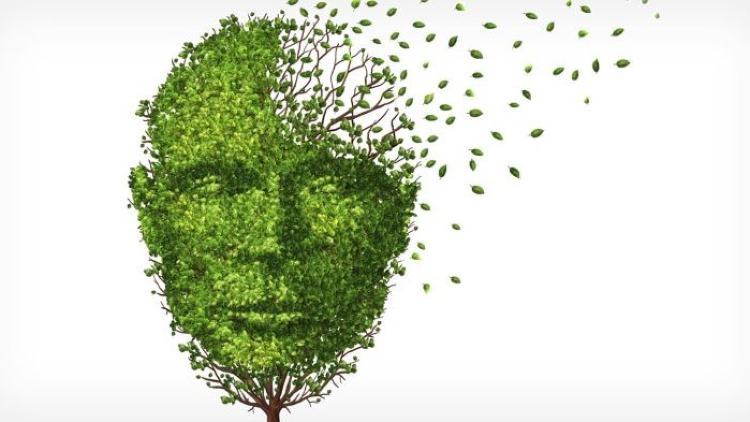
Featured image: If I could not remember my past, would I be the same person as before?
Who am I? As a conscious, self-aware human, I know that there is a ‘me’; but what makes me ‘me’? If I cannot describe a set of characteristics that make me unique, I cannot be distinguished from others. Even if I do succeed in fathoming my personal identity, the characteristics which collectively define who I am, am I a different person when I inevitably undergo significant psychological or physical change?
My psychology, analogous to the ship of Theseus and Trigger’s broom, can develop new traits and rid of old ones. Can I really say I was that person being cradled as an infant by my mother in that photo she showed me? Meanwhile, my biological makeup at the elemental level does not exhibit true permanence: many of my cells will be recycled and their arrangements will permutate. Atoms and subatomic particles, too, live fleeting and probabilistic existences, according to quantum theory.
Yes, I inhabit a bodily vehicle that can be recognised from one encounter to the next and, indeed, it can be corroborated that I am biologically ‘me’ from my DNA; but in what way can I describe who ‘I’ have consistently been throughout some period of my life between the fertilisation of an egg and today? Yet it is possible that there are conditions which, if met, will enable me to define ‘me’ as the same person as I’ve always been. Undoubtedly, I change as a person; however, I can also be an identical person if I have a continuous identity over time. First, though, I need to know if I can reasonably connect the different stages of my life.
Perhaps the answer lies in memory: that is, my identity persists through the culmination of conscious experiences, where memory is the pathway to my prior, conscious self.
Now, suppose, following some unfortunate event, that I lost my ability to recall anything about my past. Biologically, I would be the same but everything I knew and the person I thought I was would be gone. I would have no identity which I could consciously refer back to; there would be no previous memory to serve as reference for any future thought. Would I be the same person, with the same rights, protections, responsibilities, and liabilities, as before?
What constitutes a person?
To begin an attempt at answering the primary question of this essay I must first define ‘person’. Exactly what constitutes a person varies with context and culture and is open to debate. However, I will postulate that a person is a self-aware entity who possesses the ability to reason and can claim moral responsibility of one’s self. In this sense to be a person is to possess special mental properties. Empirically, unless some kind of solipsism holds true, this applies to most humans.
Some humans, though, such as those in vegetative states, lack the properties I defined. Moreover, with this definition, other entities are not necessarily excluded: apes, dolphins and Asian elephants possess the capacity to recognise themselves in a mirror (Plotnik 2006); machine learning is yet another technological reality in the advancement of artificial intelligence (Ruder 2017); and it’s not unreasonable to suggest that extra-terrestrial lifeforms, if they exist, possess mental capabilities that exceed ours. Nonetheless, we can move forward with the argument under the assumption that most humans are persons with self-awareness, reasoning powers, and moral responsibility, where each person’s personal identity is what notionally makes them unique.
What are the requirements to be the same person?
If I am a person and I claim to have my own personal identity, some ‘self’ that distinguishes me, what are the conditions to be identical to him over time or following some change? This is the ‘standard’ question of persistence.

Is this me?
Philosophical explanations of personal identity broadly fall under two categories: either they stipulate bodily criteria, where the same person exists over time only if they occupy the same body, which aligns with our intuition; or psychological criteria, where continuity of character traits and/or memories are asserted as arguments for sameness.
John Locke (2007) posed a psychological account for persons with a memory criterion, placing significance on our ability to think consciously:
In other words, we are the same persons as before if we can relate back to past experiences as those persons. I can change as a person but a person with my personhood is connected with conscious memory of action and thought. I remember the action of playing in my school’s playing field and falling and grazing my knees as an 8-year-old; I recall the thoughts I had as I sat down and felt the blades of grass run through my fingers. I am, therefore, the same person now as I was at that time and place.
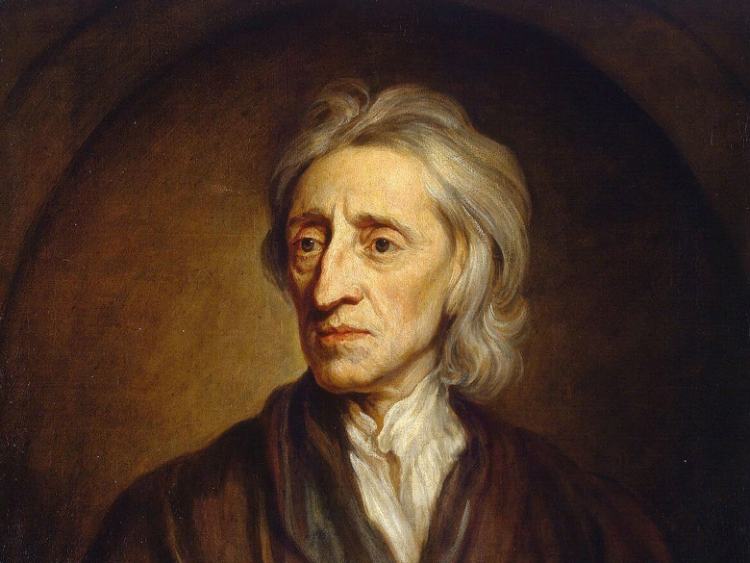
John Locke.
The implications of this view lead to some unintuitive consequences. Purportedly, I could transfer my mind or ‘soul’ to another body—say, Kim Jong-un—and my personhood would follow. Thus am ‘I’ completely distinct from my physical brain?
In addition, do we follow Locke in believing that someone is a particular person on the basis of clearly false or inaccurate memories? Many people, for example, believe that they are Jesus. Could one of those persons be him? Similarly, if I conceive a thought that replays me ruling Ancient Egypt as Tutankhamun in 14th century BC, would that mean that I was genuinely him because I firmly believe that memory to be true? Maybe the answer is ‘yes’; but we can only confirm the validity of such memories if they are verifiably true, rendering the argument unhelpfully circular since I have presupposed an unverifiable personal identity (Butler 1736). Locke could confidently claim that Tutankhamun and I cannot and did not exist at the same time and place, for uniqueness of location disqualifies the same thing existing at the same spatiotemporal location, but he might not deny that I am the same person as him now or that Jesus continues through the son of two farmers in Brasília, Brazil.
What of unconsciousness and memory loss, when my consciousness is interrupted? Am I really a different person to when I am asleep or inebriated because I possess no memory of conscious thought? Locke would have asserted that I would be different even though my body is the same and despite the fact the thoughts and actions of those persons, though disconnected from consciousness, can affect me psychologically and physically. (As an extension: if I committed homicidal sleepwalking, should I be punished? And, generally, is it fair to imprison someone for a crime they do not remember or relate to?)
Further, logical objections to his thesis can be made on grounds of transitivity of identity (Berkley 1732; Reid 1785). X, Y, and Z are different ‘person-stages’ (e.g. Reid’s ‘Brave Officer’). Z remembers being Y, Y remembers being X, but Z does not remember being X. It can then be logically supposed that X and Z are simultaneously identical. But Locke would argue that they were unidentical, for, if the non-memory-continuous person-stages X and Z occupy the same place at the same time through Y, they must constitute different persons. We could reject transitivity of identity altogether but then we still must explain how personal identity persists (if at all).
Alternatively, we could open up the memory criterion beyond the recreation of original conscious thought or action. I might, for example, be convinced of being at one with my former self if I could believe external triggers such as photos and anecdotes, both of which are aside from organic conscious recollection. However, we are again reintroduced to circularity via the reasoning above.
H.P. Grice (1941) expanded Locke’s view by attempting to explain persistence with ‘total temporary states’, the experiences any one person is having at any one time. These are composed of single elements of thought, e.g. ‘someone heard a noise’. Such thoughts belong to the same ‘someone’ if each memory in a temporary total state is a member of the preceding series. With this theory a key emendation of Locke’s view is that for persistence it only has to be possible to recollect a memory, provided that the element genuinely existed in a previous subset. This approach circumvents the obstructions circularity and transitivity pose since not all memories have to be genuine nor do we need to remember all of our prior stages to be the same person. But we do have to define ‘total temporary state’, which is a key difficulty. (Sydney Shoemaker (1970) posits self-attributed psychological states as operative in his functionalist memory criterion, where memory is central to narratives we assign to ourselves, but his analysis is too detailed for this essay.) Furthermore, we still have not accounted for unconscious states.

'I cannot remember the books I've read any more than the meals I have eaten; even so, they have made me.' — Ralph Waldo Emerson
Maybe Locke et al were wrong—or what they provided was incomplete. What if conscious memory, or the possibility of it, is just one psychological property that should be considered? Then how do we connect the different stages of our lives? We could use more-recognisable characteristics to define individuals. Dave Cohen in a conversation with Gretchen Weirob put forward the following:
But this is woolly: substantiation is needed.
There are many psychological continuity theories, many of which, unlike Locke, account for unconsciousness and memory loss. Marya Schechtman (2005), though a believer in psychological continuity, criticised many Lockean theories for their reliance on ‘memory experiences’. Without omitting memory or ‘brute self-consciousness’, she opined that excluding the ‘impact and attribution of the unconscious (or nonconscious) experiences to a person’ was short-sighted since unconscious elements can affect conscious experience: I can process what you said or catch a ball without being consciously aware of how and I utilise the skills I learned from my parents (e.g. how to use a knife and fork) with no memory of the formation of those skills. She discussed one’s sense of life as a psychological experience, putting forward the ‘self-understanding view’. Personal identity is something we, self-aware humans, assign importance to; and, as rational creatures, we are predisposed to be fundamentally concerned with the continuation of this self (Rand 1964). Like Shoemaker, Schechtman believed personal identity can be further understood with self-assigned narratives: without ignoring unconscious elements, I am a ‘perceiver-self’ with ‘self-interested concern’; I define my own trajectory consciously, I monitor my experiences to connect me to my past self, and I anticipate the future (Shoemaker 1970).
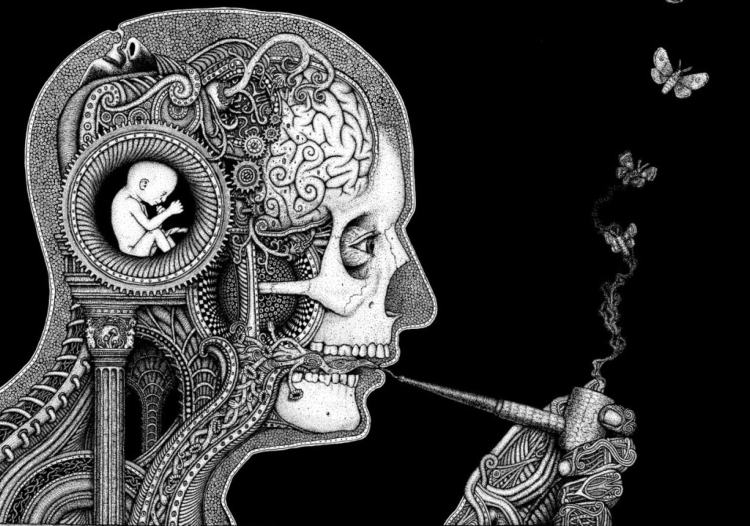
Is personal identity rooted in mind or body?
An unrectified issue with Schechtman’s view is that the reflective perceiver-self is (debatably) an illusion: there is no observer within me objectively interpreting my experiences. Whose narrative am I really defining and how is there actually continuance? How do we account for someone who exhibits multiple, enduring personality states in one body (i.e. dissociative identity disorder)? Furthermore, Schechtman questions why it should ‘matter to us that the memory experiences in question be in one substance rather than another’, claiming that the physical brain cannot be conscious of itself and so cannot affect the sense of self; yet, according to physicalists, the brain is still the source of our thoughts.

A problem for philosophers who purely believe in psychological continuity? Say, two identical twins, T1(t1) and T2(t1), were born today. They could change over time such that T2(t2) was more similar to T1(t1) than T1(t2): that is, personhood can exchange bodies without some explanation of exact continuity.
It is logically difficult to completely negate the physical. Philosophers who argue bodily criteria for personal identity, on the other hand, offer theories that align with basic intuition even though they are not always conceptually simple. We recognise another person with our senses and intuit that the same person survives because the physical body survives. We praise and blame bodies and assign moral responsibility to them. We hold people accountable with the law in this way: someone might be held in jail for multiple life sentences even though they could, arguably, as discussed, change as a person psychologically. (Should they be absolved if it is safe to do so?)
Some bodily criteria theorists go as far as asserting that if I transplanted my brain to another body, an organism would exist without the brain through brute-physical persistence conditions (Carter 1989; Olson 1997). There would, then, be two living entities. Thus, if a psychological-continuity view was true, a person who was psychologically continuous with and unique to me would exist in the other body, whilst a biological organism which cannot be explained with the theory would be left behind.
Eric Olson expounded the powerful argument of ‘animalism’ by asking ‘Was I Ever a Fetus?’ (Olson 1997). He contested the idea that, in the psychological-continuity view, a foetus would become a person as it acquired decipherable psychological traits, which would imply that it was not ‘me’ at 5 months old because the foetus had no psychological actuality. It was not continuous or numerically identical to me. Hence either my subsequent personal existence necessarily destroyed it—but how can mental capabilities destroy a living organism?—or my personhood shared the same biological space as the organism (foetus). But, in the latter case, we are led to the ‘Too-Many-Thinkers’ problem, whereby, if we believe organisms can exist and are connected to thinking entities, we are granted multiple identities in one being which are indistinguishable. This idea contradicts the notion that a single person persists through psychological continuity. Which person is you? And, further, if the foetus was not a person but grew a mental life and thinks it is one now, which being is the person? These are significant challenges for psychological continuity theorists.
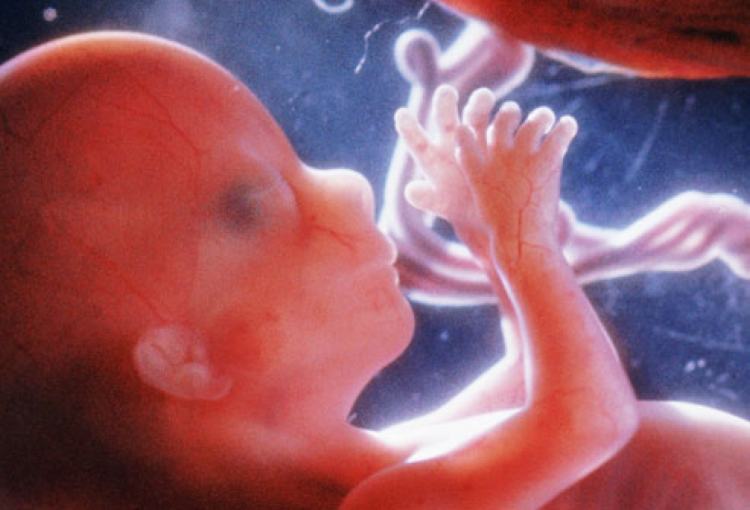
A human foetus at 16 weeks.
The assertion of animalism is that I am still an organism and that my identity is rooted in it, not personhood. I was once a foetus and I acquired the mental capacities that were essential for me to become a person, which seems sensible. Nevertheless, Olson faces some doubts. Entities of artificial intelligence, for instance, beyond ‘thinking’ as Alan Turing (1950) predicted, could acquire certain properties to be classed as persons. Moreover, Olson concluded that I can survive without any mental capacity at all and that key parts of my brain could be transplanted into another body and my body would still be classed as ‘me’. The brain, in Olson’s view, is not necessary to meet bodily criteria.
Gretchen Weirob’s take on identity is in tune with Olson’s (Perry 1978). If my brain was removed and transferred everything it held to a new body, it would not follow that the new body was me: only the original body, which I am attached to, with the original memories could be unique and identical to me at another time and place.
Derek Parfit (1971), though, argued that the brain plays a more pivotal role, contending that a psychological account of personal identity was reasonable. Similar to the case of railroad construction foreman Phineas Gage, who survived being impaled by an iron pole following an explosion, somebody can survive with less of a brain but their characteristics might change dramatically, arguably rendering them a different person. Illustrating his point by considering the fission of the brain, he claimed that we care about the survival of our psychologies, not our bodies:
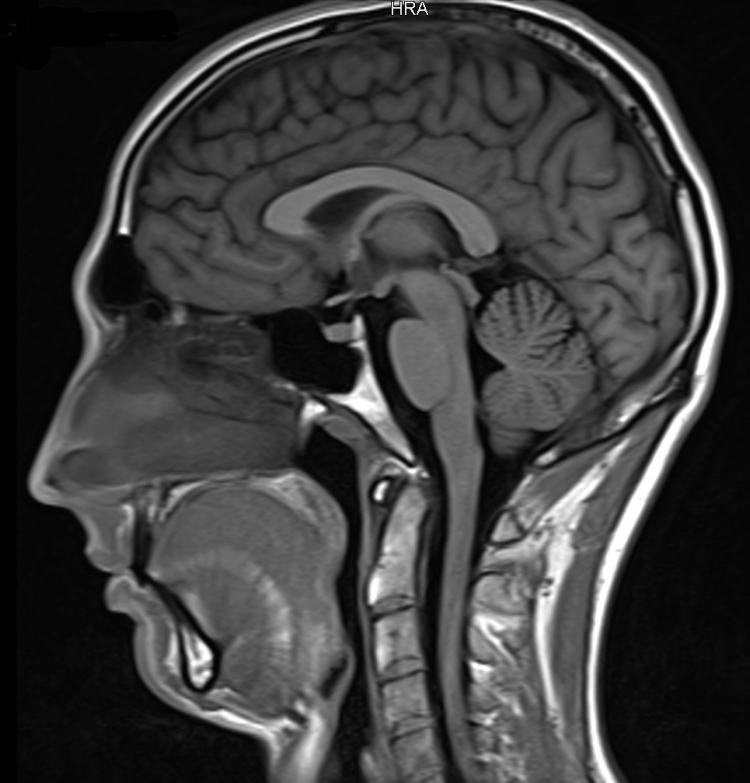
An MR image of my brain.
Dividing my brain into different parts would mean that I survived as multiple people. But there can still only be one original ‘me’. Various characteristics of my personhood could transfer with ‘non-branching psychological continuity’, which is transitive and mutative but not my identity, which is ‘one-one’. Psychologically, there would be multiple past and future selves which need not be directly connected; and if I kept on splitting my brain and housing its constituent parts into other bodies, any notion of identity would eventually crumble.
An issue with Parfit’s impersonal views, however, is: how many different persons can we realistically expect to derive from a single entity? Is the bulk of the brain actually essential to the manifestation of identity? Additionally, his stance not only contradicts the views of bodily criteria theorists like Olson, since my initial body is not predicated for my survival in another in his view, but also psychological continuity theorists like Locke, for features such as memories will not guarantee the continuation of my current personhood. Yet the theory is logically sound and accounts for the physical brain unlike many other psychological continuity theories.
I wake up. I cannot remember 'my' past. Am I the same person as before?
The nature of personal persistence, as I have outlined, poses puzzling questions with unquestionably real consequences. While it is relatively simple to define what makes me a person, it is somewhat complex to describe what properties satisfy conditions of personal persistence. Is personal identity rooted in our psychologies or our bodies? There are compelling arguments for both.
In Bernard William’s torture thought experiment the human does not want to be tortured even though their memories will be wiped before the event (Williams 1970). They are concerned with the survival of their body. Equally, if my psychological personhood was duplicated to another entity—for instance, with artificial intelligence like in the films A.I. Artificial Intelligence (2001) and Blade Runner (1982)—the other entity would still feel ownership over the original identity (akin to the human Sam Bell in Moon (2009) and the simulated crew of USS Callister in Black Mirror S4E1, even in the absence of uniqueness). Similarly, Marya Schechtman argues that we would feel the need to distribute death letters if we knew amnesia was impending with emphatic certainty (Schechtman 2005; Williams 1970). Attached to body or psychology, human intuition is not a reliable gauge of sameness.
What of the role of conscious memory? Sure, it plays a role in how I think and how I psychologically relate myself to previous and future selves but there are logical flaws in it being the pillar of identity. Memories are thin, fallible, and unreliable reconstructions (Lindsay 1995). There might be a time I recall—or think I accurately remember from a flimsy compendium of biologically recorded events—that occurred during a faraway, hazy period of my development. I might believe these memories to be true. I might vividly recollect an experience that has undergone an imperfect replication process again and again. Yet, because of circularity, they cannot be properly scrutinised and they encounter the challenges of transitivity. There are other aspects to consider such as personality traits, the influence of the unconscious mind, psychological states, and our biological existence as organisms.

'I've seen things you people wouldn't believe … All those moments will be lost in time, like tears in rain.' — Roy Batty (Rutger Hauer), Blade Runner (1982)
What of identity at all? Evidently, I feel ownership and attachment over who I am at present but this can be a vague, unstable, existential illusion. I can change in a multitude of ways over time—perhaps to the point I could become a different person altogether. In the face of contingency, early philosophical endeavours often precede a truth which might never be found. Yet, in this quest, I am minded to side with Parfit, notwithstanding the current challenges his views face, including those posed by Olson.
‘Sameness’ and ‘survival’, to me, are more-helpful expressions than ‘identity’. Why does my person have to be connected to past and future ‘me’?
In the future I might change beyond recognition—for example, due to a sudden onset of dementia or by virtue of age. Hence it does not feel controversial to suggest that, hypothetically, I ought to be more concerned with persons who will be housed in other bodies than a ‘me’ in my body in the future if they will be more comparable to myself now. With this in mind, concerns for ‘my’ health as an elderly person, which are pre-empted now with a healthy diet, might not be vindicated if the self, who is my concern and who occupies my body, significantly changes. And can I be proud of ‘my’ prior achievements? Can I be ashamed of his acts? If I wanted to take revenge on a bully from school now, as an adult, who would I really be punishing?
My brain stores memories of what I believe to be conscious experiences as myself. However, the many versions of myself who can occupy my body at different times in my life need not be connected. Memories clearly play a role in forming my current personal identity but there can be psychological continuity between the occupying persons without them. So if I forgot everything I ever knew, I might not be the same person; but ‘I’ would survive as a similar individual.
Bibliography
- Berkeley, G. 1732. Alciphron: Or, the Minute Philosophers, Dublin: Risk, Ewing, and Smith, in The Works of George Berkeley, Bishop of Cloyne, 1948—1957, 9 volumes, eds. AA Luce and TE Jessop, London: Thomas Nelson and Sons.
- Butler, J. 1736. The Analogy of Religion, Appendix I: Of Personal Identity, London: J. M. Dent & Sons Ltd.
- Carter, WR. 1989. How to Change Your Mind, Canadian Journal of Philosophy, vol. 19, no. 1 pp. 1—14.
- Lindsay, DS. 1995. Memory Work and Recovered Memories of Childhood Sexual Abuse: Scientific Evidence and Public, Professional, and Personal Issues, Psychology, Public Policy, and Law, vol. 1, no. 4, pp. 846—908.
- Locke, J. 2007 [1690]. Of Identity and Diversity, An Essay Concerning Human Understanding, Book II: Ideas, ch. 27, ed. J Bennett, Copyright © 2010—2015 Jonathan Bennett.
- Olson, ET. 1997. Was I Ever a Fetus?, Philosophy and Phenomenological Research, vol. 57, no. 1, pp. 95—110.
- Parfit, D. 1971. Personal Identity, The Philosophical Review, vol. 80, no. 1, pp. 3—27.
- Perry, J. 1978. A Dialogue on Personal Identity and Immortality, Indianapolis: Hackett Publishing.
- Plotnik, JM. 2006. Self-recognition in an Asian elephant, PNAS, vol. 103, no. 45, pp. 17053—17057.
- Rand, A. 1964. The Virtue of Selfishness: A New Concept of Egoism, New York: New American Library.
- Reid, T. 1785. Essays on the Intellectual Powers of Man, Edinburgh: John Bell.
- Ruder, S. 2017. An Overview of Multi-Task Learning in Deep Neural Networks, Dublin: Sebastian Ruder.
- Schechtman, M. 2005. Personal Identity and the Past, Philosophy, Psychiatry, & Psychology, vol. 12, no. 1, pp. 9—22.
- Shoemaker, S. 1970. Persons and Their Pasts, American Philosophical Quarterly, vol. 7, no. 4, pp. 269—285.
- Turing, AM. 1950. Computing Machinery and Intelligence, Mind, vol. 49, pp. 433—460.
- Williams, B. 1970. The Self and the Future, The Philosophical Review, vol. 79, no. 2, pp. 161—180.

